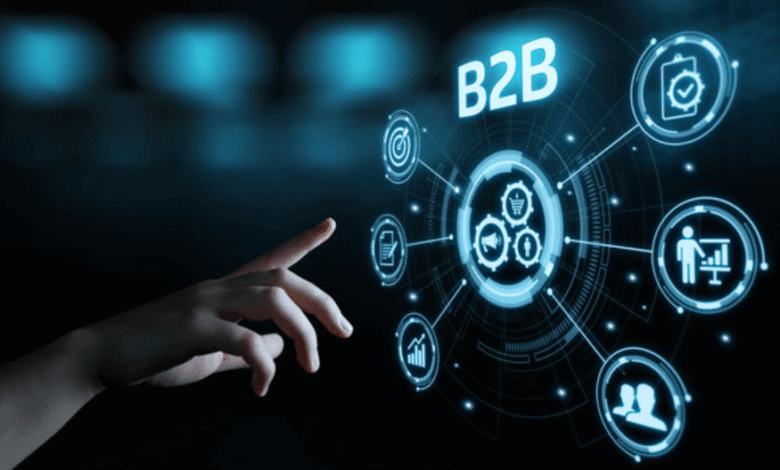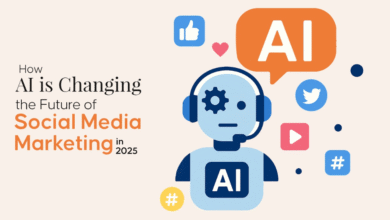What Makes an Effective B2B Sales Funnel

In the competitive landscape of business-to-business (B2B) sales, a well-structured sales funnel is the linchpin of success, guiding potential clients from initial awareness to final purchase with precision and purpose. Unlike B2C funnels, which often prioritize impulse and volume, B2B funnels navigate complex decision-making processes, longer sales cycles, and multiple stakeholders. An effective B2B sales funnel aligns marketing and sales efforts to build trust, deliver value, and drive conversions. This article explores the essential components, strategies, and nuances that define a high-performing B2B sales funnel, offering insights into how businesses can optimize their approach to achieve sustainable growth.
Crafting a Clear Path from Awareness to Decision
A B2B sales funnel begins with a clear structure that maps the buyer’s journey, typically encompassing stages like awareness, interest, consideration, intent, evaluation, and purchase. Each stage requires tailored strategies to address the unique needs of B2B buyers, who often represent organizations with specific goals and constraints. For instance, a company seeking enterprise software might start by researching industry trends, progress to evaluating vendors, and finally negotiate contracts with key decision-makers.The effectiveness of the funnel hinges on its ability to guide prospects seamlessly through these stages. At the awareness stage, businesses might use thought leadership content, such as whitepapers or webinars, to attract attention. As prospects move to consideration, case studies or product demos can showcase value. By aligning content and touchpoints with each stage, the funnel ensures a logical progression, reducing friction and keeping prospects engaged.
See also: Exploring the Future of Wearable Tech
Prioritizing Targeted Lead Generation
Generating high-quality leads is the foundation of a successful B2B sales funnel. Unlike broad consumer campaigns, B2B marketing targets specific industries, roles, or company sizes, requiring a deep understanding of the ideal customer profile (ICP). Effective funnels leverage data-driven strategies, such as account-based marketing (ABM), to focus on high-value prospects with a higher likelihood of conversion.For example, a SaaS provider targeting mid-sized tech firms might use LinkedIn ads to reach IT directors, offering a free trial to capture interest. By narrowing the focus to decision-makers with relevant pain points, the funnel filters out unqualified leads early, saving time and resources. Tools like CRM platforms and analytics further refine this process, identifying prospects who engage with content or demonstrate buying intent, ensuring the funnel remains efficient and targeted.
Building Trust Through Value-Driven Content
Trust is a critical currency in B2B sales, where decisions involve significant investments and multiple stakeholders. An effective funnel prioritizes value-driven content that addresses prospects’ challenges and establishes credibility. This might include in-depth blog posts, industry reports, or personalized email campaigns that provide actionable insights rather than overt sales pitches.For instance, a consulting firm targeting manufacturing companies could offer a downloadable guide on optimizing supply chain efficiency. By delivering tangible value, the firm positions itself as a trusted advisor, increasing the likelihood of prospects advancing through the funnel. This approach also fosters long-term relationships, as prospects who feel understood and supported are more likely to convert and remain loyal clients.
Streamlining the Consideration Phase
The consideration phase, where prospects evaluate solutions, is often the most complex in B2B sales due to the involvement of multiple stakeholders—executives, managers, and end-users—each with distinct priorities. An effective funnel streamlines this phase by providing clear, accessible information that addresses diverse needs. Product demos, detailed proposals, and ROI calculators can help decision-makers assess value and align on a solution.Personalization is key here. For example, a cybersecurity company might tailor a demo to highlight features relevant to a prospect’s industry, such as compliance for healthcare firms. By anticipating objections and providing tailored resources, the funnel reduces decision-making friction, guiding prospects toward the intent and evaluation stages with confidence.
Leveraging Technology for Efficiency
Technology plays a pivotal role in optimizing B2B sales funnels, automating repetitive tasks and providing insights into prospect behavior. Customer Relationship Management (CRM) systems like Salesforce or HubSpot track interactions, score leads based on engagement, and prioritize follow-ups, ensuring sales teams focus on high-potential opportunities. Marketing automation platforms streamline email campaigns and nurture leads with targeted content, maintaining momentum through the funnel.Analytics tools further enhance efficiency by identifying bottlenecks. If prospects are dropping off at the consideration stage, for instance, analytics might reveal that content is too generic or demos are too lengthy. By addressing these issues, businesses can refine the funnel, improving conversion rates and reducing sales cycle length.
Aligning Sales and Marketing Teams
A common pitfall in B2B sales is misalignment between marketing and sales teams, leading to disjointed efforts and lost opportunities. An effective funnel fosters collaboration, ensuring both teams work toward shared goals. Marketing generates qualified leads and nurtures them with relevant content, while sales engages prospects with personalized outreach and closes deals.Regular communication is essential. For example, weekly meetings to review lead quality and conversion metrics can help teams identify gaps and adjust strategies. A shared understanding of the ICP and funnel goals ensures that marketing delivers leads that sales can effectively convert, creating a cohesive journey from awareness to purchase.
Addressing Long Sales Cycles
B2B sales cycles are often lengthy, spanning weeks or months due to complex decision-making processes. An effective funnel mitigates this challenge by maintaining consistent engagement throughout the cycle. Drip email campaigns, retargeting ads, and periodic check-ins keep prospects warm, preventing them from disengaging or turning to competitors.For instance, a company selling enterprise software might send a series of emails highlighting customer success stories, followed by an invitation to a live Q&A with a product expert. These touchpoints reinforce value and address concerns, keeping prospects motivated to move forward. Patience, paired with strategic nurturing, ensures the funnel remains effective even for extended cycles.
Measuring and Optimizing Performance
Continuous improvement is a hallmark of an effective B2B sales funnel. Businesses must regularly measure key performance indicators (KPIs), such as lead-to-opportunity conversion rates, average deal size, and time to close, to assess the funnel’s health. Analytics platforms provide granular insights, revealing which stages perform well and where prospects drop off.Optimization might involve A/B testing email subject lines, refining landing page designs, or adjusting pricing models based on feedback. For example, if analytics show high drop-off during the evaluation stage, offering a free consultation or extended trial could improve conversions. By iterating based on data, businesses ensure the funnel remains agile and responsive to market dynamics.
Adapting to Industry-Specific Needs
B2B sales funnels must be adaptable to the unique needs of different industries. A funnel designed for healthcare clients, for instance, might emphasize compliance and data security, while one for manufacturing might focus on operational efficiency. Understanding industry pain points and tailoring content accordingly ensures relevance and resonance.For example, a logistics software provider might create a funnel that includes webinars on supply chain optimization for manufacturing prospects, while offering case studies on HIPAA compliance for healthcare clients. This industry-specific approach enhances the funnel’s effectiveness, addressing the distinct priorities of each sector.
Fostering Long-Term Client Relationships
The ultimate goal of a B2B sales funnel extends beyond closing deals to fostering enduring client relationships. Effective funnels incorporate post-purchase strategies, such as onboarding support, regular check-ins, and upselling opportunities, to ensure client satisfaction and retention. A delighted client is more likely to renew contracts, provide referrals, or expand their engagement with the business.For instance, a cloud services provider might offer dedicated account managers to guide clients through implementation, followed by quarterly reviews to identify new needs. By prioritizing client success, the funnel creates a cycle of trust and loyalty, driving long-term revenue growth and reinforcing the business’s reputation.
Driving Sustainable Growth Through Strategic Funnels
An effective B2B sales funnel is a dynamic, strategic tool that transforms prospects into loyal clients by aligning with their needs, leveraging technology, and fostering collaboration. By focusing on targeted lead generation, value-driven content, and continuous optimization, businesses can navigate the complexities of B2B sales with confidence. As markets evolve and buyer expectations shift, a well-crafted funnel remains a cornerstone of sustainable growth, enabling companies to build trust, deliver value, and thrive in a competitive landscape.




